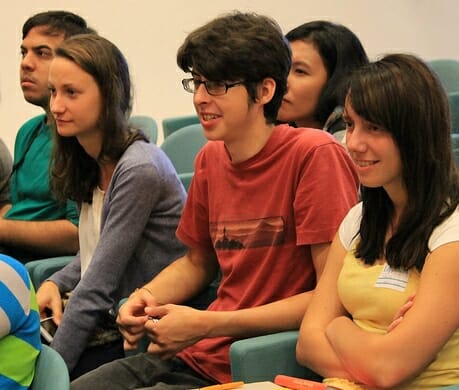
Oct 2, 2015 | Focolare Worldwide, Senza categoria
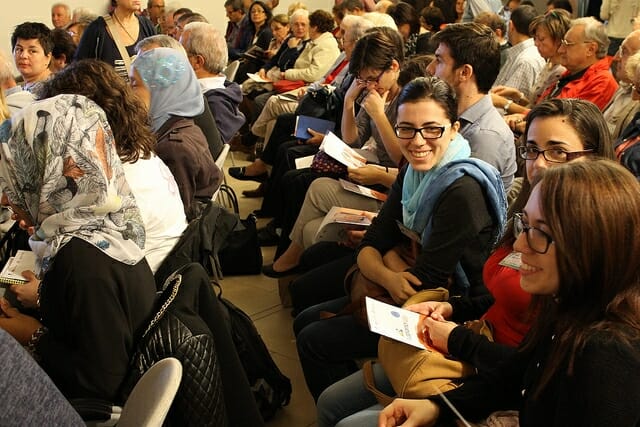 “Hosting the extraordinary in the ordinary things, training one’s perception to see the growth of the tree: without prophets, life would be a place of pessimism and not of hope which unites us.” In brief, this was what the economist, Luigino Bruni, said at the National Congress of the EoC networks during the 6th edition of LoppianoLab, attended by more than 2,000 participants from all over the country, and also others. Economy of Conmunion as a model to start with. “Only by regenerating relationships can we overcome fear and relaunch the economy: today, while mistrust and pessimism are holding back the relaunching of the economy in Europe and the Western world, we dare to look at the economy with the eyes of the African youth. – Bruni began – If we want to contribute to the rebirth of the economy, we have to regenerate the territories, families, relationships and rediscover and practice the civic virtues”. Not by chance, the title chosen was “Beyond fear. The culture of dialogue, active citizenship, civic economy,” for the 2015 edition of LoppianoLab, promoted by the Città Nuova Publishers, the Polo Lionello Bonfanti-Economy of Communion (EoC), Sophia University Institute (SUI) and the Loppiano International Centre (FI). Obviously there was a pressing call to the economic sector that involves about 200 businesses in Italy and 800 throughout the world, to adhere to and focus on man and his relational dimension in all their economic dealings, by practicing an Economy of Communion.
“Hosting the extraordinary in the ordinary things, training one’s perception to see the growth of the tree: without prophets, life would be a place of pessimism and not of hope which unites us.” In brief, this was what the economist, Luigino Bruni, said at the National Congress of the EoC networks during the 6th edition of LoppianoLab, attended by more than 2,000 participants from all over the country, and also others. Economy of Conmunion as a model to start with. “Only by regenerating relationships can we overcome fear and relaunch the economy: today, while mistrust and pessimism are holding back the relaunching of the economy in Europe and the Western world, we dare to look at the economy with the eyes of the African youth. – Bruni began – If we want to contribute to the rebirth of the economy, we have to regenerate the territories, families, relationships and rediscover and practice the civic virtues”. Not by chance, the title chosen was “Beyond fear. The culture of dialogue, active citizenship, civic economy,” for the 2015 edition of LoppianoLab, promoted by the Città Nuova Publishers, the Polo Lionello Bonfanti-Economy of Communion (EoC), Sophia University Institute (SUI) and the Loppiano International Centre (FI). Obviously there was a pressing call to the economic sector that involves about 200 businesses in Italy and 800 throughout the world, to adhere to and focus on man and his relational dimension in all their economic dealings, by practicing an Economy of Communion.  Dreaming of Africa. The workshop often referred to the EoC’s international congress held last May in Nairobi, the vitality of which was discussed by Geneviéve Sanze, an economist from Central Africa. In her continent, as of today, there are about 30 businesses that have joined the project which gave life to a network of support for the youth by the EoC entrepreneurs. People at times think that “Economy is a science of wealth: and believe that you have to go to the big cities to practice it, but with EoC, it has become the science of communion – she affirmed. Exchange of ideas, dialogue, and fraternity: in Nairobi we saw that every person brings a certain wealth within him that is all-inclusiveness and uniqueness, in the same way as the creative entrepreneur tries to enrich his ambience and his territory without catering to standards that are remote and far from the attention of the outskirts in need. And a totally new way of facing the topic of economy at international levels is to start from Africa, but even more so when considering the contribution Africa can give, rather than receive, thus giving trust and new drive to the Africans themselves, to empower their opportunities in their own countries.” Africa is a young continent, as testified to by Gloria and Melchiot, two African students enrolled in the Sophia University Institute in Loppiano: “Allowing the African youth to have their dreams signifies avoiding the phenomenon of immigration: so why don’t we open businesses in Africa, so that they can find jobs there?” Anouk Grevin, Economist (University of Nantes and Sophia University Institute), announced that “Two business projects have started up in Nairobi. The Catholic University Institute of Buea (CUIB) in Cameroon has announced the institution of a Degree in the Economy of Communion, and the start in 2017 of the project incubator, “Siobhan,” to support the birth of new businesses in Africa. The second project dedicated to François Neveux, French pioneer of the EoC, will bring together entrepreneurs from all over the world, and create a network of economic support and project design, addressing especially young entrepreneurs.” Source: Città Nuova
Dreaming of Africa. The workshop often referred to the EoC’s international congress held last May in Nairobi, the vitality of which was discussed by Geneviéve Sanze, an economist from Central Africa. In her continent, as of today, there are about 30 businesses that have joined the project which gave life to a network of support for the youth by the EoC entrepreneurs. People at times think that “Economy is a science of wealth: and believe that you have to go to the big cities to practice it, but with EoC, it has become the science of communion – she affirmed. Exchange of ideas, dialogue, and fraternity: in Nairobi we saw that every person brings a certain wealth within him that is all-inclusiveness and uniqueness, in the same way as the creative entrepreneur tries to enrich his ambience and his territory without catering to standards that are remote and far from the attention of the outskirts in need. And a totally new way of facing the topic of economy at international levels is to start from Africa, but even more so when considering the contribution Africa can give, rather than receive, thus giving trust and new drive to the Africans themselves, to empower their opportunities in their own countries.” Africa is a young continent, as testified to by Gloria and Melchiot, two African students enrolled in the Sophia University Institute in Loppiano: “Allowing the African youth to have their dreams signifies avoiding the phenomenon of immigration: so why don’t we open businesses in Africa, so that they can find jobs there?” Anouk Grevin, Economist (University of Nantes and Sophia University Institute), announced that “Two business projects have started up in Nairobi. The Catholic University Institute of Buea (CUIB) in Cameroon has announced the institution of a Degree in the Economy of Communion, and the start in 2017 of the project incubator, “Siobhan,” to support the birth of new businesses in Africa. The second project dedicated to François Neveux, French pioneer of the EoC, will bring together entrepreneurs from all over the world, and create a network of economic support and project design, addressing especially young entrepreneurs.” Source: Città Nuova
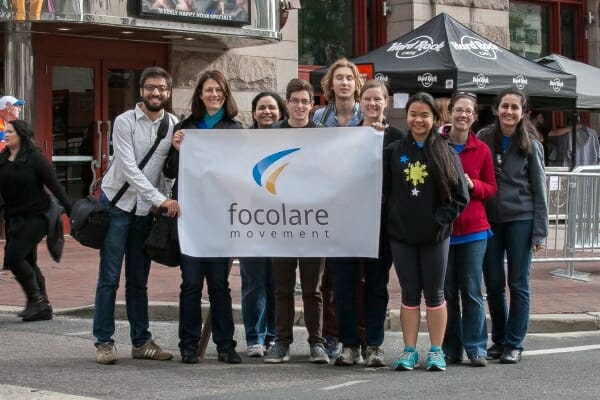
Oct 1, 2015 | Focolare Worldwide
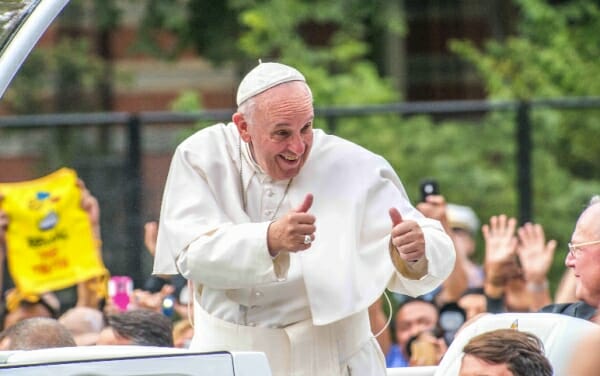
Photo © Renato Araujo

Photo © Andrea Re
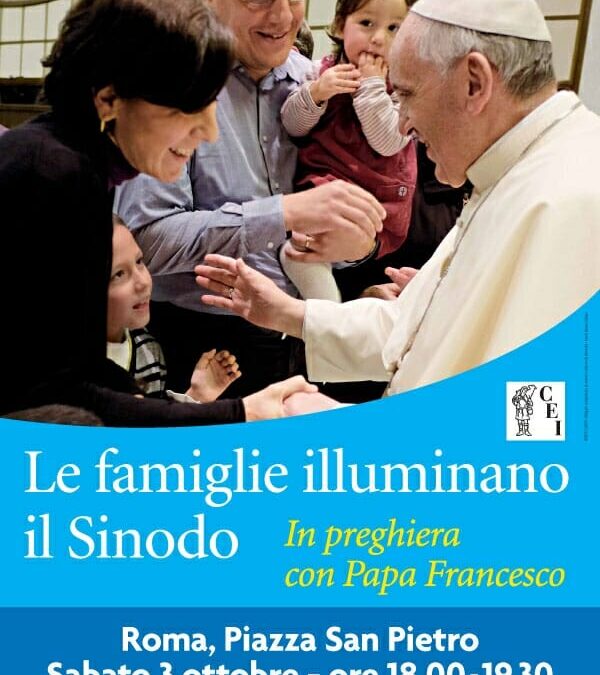
Sep 30, 2015 | Non categorizzato
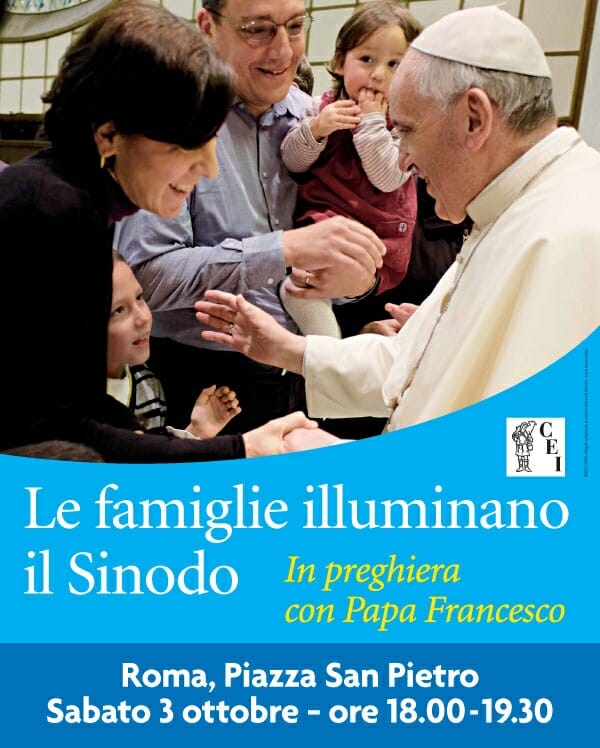
From 5:00 p.m. to 6:00p.m., testimonies by the ecclesial movements, among whom Maria Voce of the Focolare Movement.
This initiative is a people’s response to the Holy Father’s multiple appeals for prayer for the family and for the work of the Synod Fathers. Among the testimonies expected, from 5:00 p.m. to 6:00 p.m., will be those of the representatives of ecclesial movements, among whom Maria Voce, president of the Focolare Movement, Kiko Argüello, initiator of the Neocatechumenal Way, Julián Carrón, president of Communion and Liberation, Salvatore Martinez, president of the Renewal in the Holy Spirit Movement, and Matteo Truffelli, president of the Italian Catholic Action.
Prayer Vigil Booklet General Information
Sep 30, 2015 | Non categorizzato
https://www.change.org/p/sign-up-for-a-global-petition-for-peace-now Confronted with the humanitarian drama of the refugees, the Focolare’s Youth for Unity step into action on many fronts, mobilising and appealing to international organisations, while joining in the efforts of the entire Movement.
- Reduce public funding of weapons
- Work at the root level of inequality, to counter misery
- Revise current models of governance
- Adopt a model of organised legality in opposition to criminality
- Guarantee universal primary education
These are the five main points of the appeal made by the young people of the Focolare’s Youth for a United World (YUW) to national parliaments, the European Parliament, the National Commissions of UNESCO and the United Nations. https://www.youtube.com/watch?v=om7WN06PMiU

Sep 30, 2015 | Non categorizzato

From 5:00 p.m. to 6:00p.m., testimonies by the ecclesial movements, among whom Maria Voce of the Focolare Movement.
This initiative is a people’s response to the Holy Father’s multiple appeals for prayer for the family and for the work of the Synod Fathers. Among the testimonies expected, from 5:00 p.m. to 6:00 p.m., will be those of the representatives of ecclesial movements, among whom Maria Voce, president of the Focolare Movement, Kiko Argüello, initiator of the Neocatechumenal Way, Julián Carrón, president of Communion and Liberation, Salvatore Martinez, president of the Renewal in the Holy Spirit Movement, and Matteo Truffelli, president of the Italian Catholic Action.
Prayer Vigil Booklet General Information
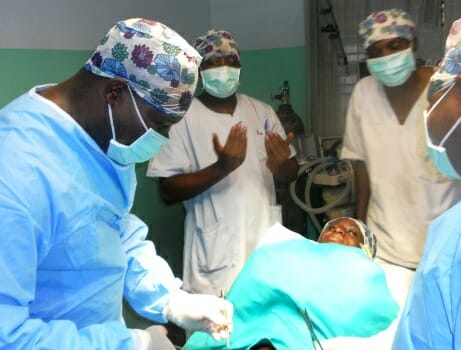
Sep 30, 2015 | Focolare Worldwide
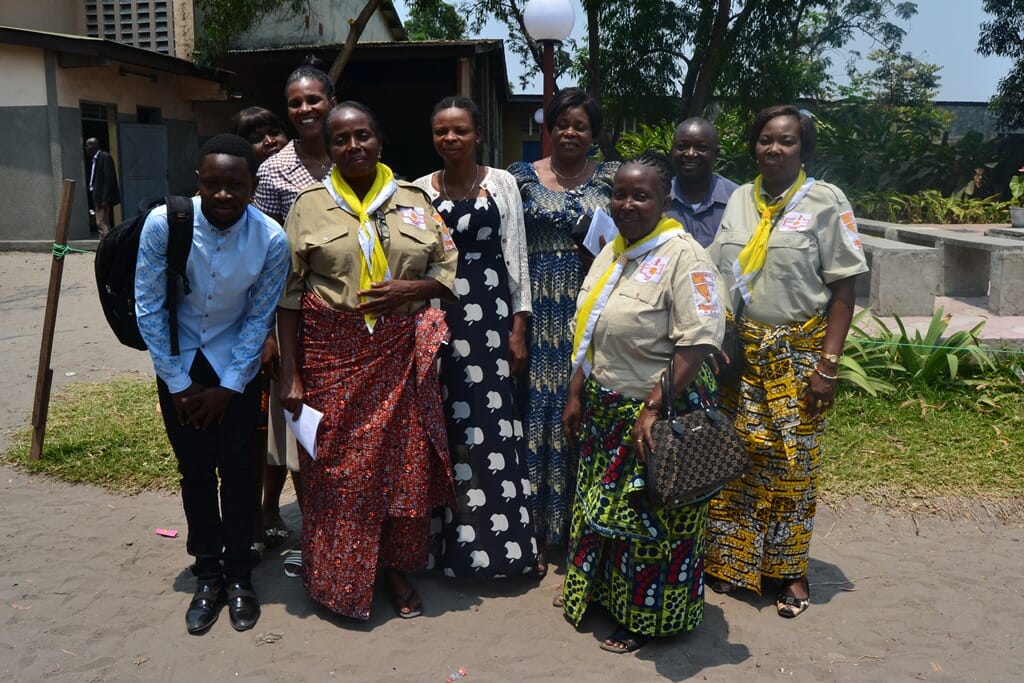 “One day we were closing, when at 4:30 p.m. a mother with a baby about 8 months old arrived for a blood sample withdrawal.” Aline M. is a nurse and a biologist in the university clinic of Kinshasa. In the Congo/DRC, the birth rate is very high, as is the mortality rate and the infant mortality rate. Life expectancy at birth and the average age of the population are both very low. “My colleagues had already closed the registration books and wanted to leave. But the words of the Gospel, which say to love one’s neighbour as oneself, came to my mind: ‘I have to welcome even this mother,’ I thought. I took a blood sample from the little one, and as I was finishing, the mother said to me with a firm voice, ‘God bless you, ma’am!”
“One day we were closing, when at 4:30 p.m. a mother with a baby about 8 months old arrived for a blood sample withdrawal.” Aline M. is a nurse and a biologist in the university clinic of Kinshasa. In the Congo/DRC, the birth rate is very high, as is the mortality rate and the infant mortality rate. Life expectancy at birth and the average age of the population are both very low. “My colleagues had already closed the registration books and wanted to leave. But the words of the Gospel, which say to love one’s neighbour as oneself, came to my mind: ‘I have to welcome even this mother,’ I thought. I took a blood sample from the little one, and as I was finishing, the mother said to me with a firm voice, ‘God bless you, ma’am!” 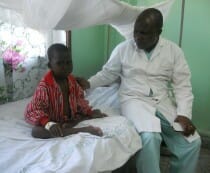 I was just able to convince a colleague from the blood blank to take this last emergency, when another serious problem presented itself. It was already 5:00 p.m. There was a mother in tears, who could not pay for health insurance, with 4-year-old child in her arms, afflicted by severe anemia. My colleague decidedly told me that it was no longer possible to accept anyone. ‘Otherwise I’ll lose my job,’ she exclaimed. I was moved by this suffering. I took a sheet of paper and attested in writing that I was responsible for the cost of the blood transfusion for this child. My colleague then accepted, and immediately gave the child the transfusion, saving his life. The child’s mother said to me: ‘God will return you the money. I am sure of it!’
I was just able to convince a colleague from the blood blank to take this last emergency, when another serious problem presented itself. It was already 5:00 p.m. There was a mother in tears, who could not pay for health insurance, with 4-year-old child in her arms, afflicted by severe anemia. My colleague decidedly told me that it was no longer possible to accept anyone. ‘Otherwise I’ll lose my job,’ she exclaimed. I was moved by this suffering. I took a sheet of paper and attested in writing that I was responsible for the cost of the blood transfusion for this child. My colleague then accepted, and immediately gave the child the transfusion, saving his life. The child’s mother said to me: ‘God will return you the money. I am sure of it!’  Returning home, I asked myself: ‘Why is it that I met two mothers with such suffering children right at closing time?’ I read the Word of Life, a sentence from the Gospel, and I found comfort. The next week, I received an invitation from my health service. From among my colleagues I was chosen for a 3-day professional training course. The financial contribution given to me for my participation was $150 US dollars! There was God’s answer. For having paid $25 US dollars for the blood transfusion, I received two blessings plus this amount which now allows me to also pay the scholastic fees for my children.” A.M. – Kinshasa, Congo/DRC
Returning home, I asked myself: ‘Why is it that I met two mothers with such suffering children right at closing time?’ I read the Word of Life, a sentence from the Gospel, and I found comfort. The next week, I received an invitation from my health service. From among my colleagues I was chosen for a 3-day professional training course. The financial contribution given to me for my participation was $150 US dollars! There was God’s answer. For having paid $25 US dollars for the blood transfusion, I received two blessings plus this amount which now allows me to also pay the scholastic fees for my children.” A.M. – Kinshasa, Congo/DRC
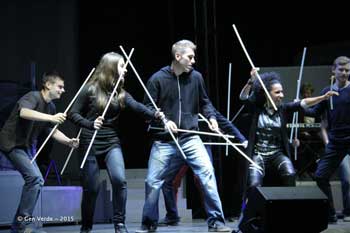
Sep 29, 2015 | Focolare Worldwide
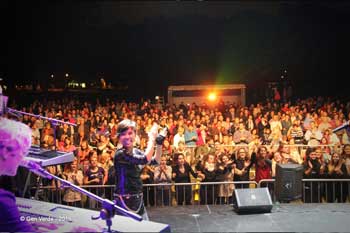 “Start Now!” That is, start here and now, to build authentic relationships and to generate trust. It is an invitation worth its weight in gold, you might say, and it was the title Gen Verde chose for the concert/workshop brought to the stage of the Tágas Tér Festival, on September 25th in Szeged, Hungary. The protagonists in these eight workshops, along with the artists, were 120 teens from two high schools, one of which is a professional institute frequented by many students who have difficult family situations. “Tágas Tér, which literally means, ‘open space,’” explains one of the organizers, “is in fact a big ecumenical meeting which exposes the network of hundreds of activities in the world for civic solidarity. Szeged is 15 km from the Hungarian border with Serbia, and therefore, many people were present at the concert who experience the passage of thousands of immigrants daily, with the sea of questions and sorrow that comes along with it.
“Start Now!” That is, start here and now, to build authentic relationships and to generate trust. It is an invitation worth its weight in gold, you might say, and it was the title Gen Verde chose for the concert/workshop brought to the stage of the Tágas Tér Festival, on September 25th in Szeged, Hungary. The protagonists in these eight workshops, along with the artists, were 120 teens from two high schools, one of which is a professional institute frequented by many students who have difficult family situations. “Tágas Tér, which literally means, ‘open space,’” explains one of the organizers, “is in fact a big ecumenical meeting which exposes the network of hundreds of activities in the world for civic solidarity. Szeged is 15 km from the Hungarian border with Serbia, and therefore, many people were present at the concert who experience the passage of thousands of immigrants daily, with the sea of questions and sorrow that comes along with it. 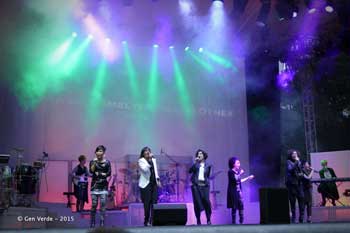 “On the Other Side”: During the concert, many songs were heard from “On the Other Side,” the latest album by Gen Verde, released less than a month ago. But what is “the other side”? is a spontaneous question many ask themselves. “It’s the person I have in front of me, the person who thinks differently than I; the person I don’t admire or even like,” explains Adriana Garcia, the group’s bass player from Mexico. A powerful show, engaging and at the same time capable of questioning positions, opinions and lifestyles as someone has said. Because what emerges from the music and the lyrics is the certainty that the solution to a broken world, divided by walls, comes from understanding the richness inherent in diversity. Among the eleven songs on the album there is the story of the difficult progress of an entire people in the piece “Voz de la Verdad,” about the Salvadorian bishop, Oscar Romero, or the very current and relevant song about the division of the two Koreas, built on K-pop melodies, almost as if to say that even among young Koreans the wound has not yet healed. “They are stories that do not permit us to fall into indifference,” comments one girl, “or to forget our brothers and sisters from whom we are separated by a border. We have felt strongly called even to give our lives for justice.” “Needless to say, the most powerful moment of the concert was the song “Chi piange per te,” (“Who cries for you”) a sweet lullaby dedicated to a baby girl entombed in the waters of the Sicilian Canal, perhaps because of the situation our country is living now with the immigration issue,” confided a friend who works with the media. And a Pastor of the Reformed Church, Gábor Czagány, one of the organizers of the Festival, stated: “What struck me the most were the faces of the young people from the schools that took part in the workshops. There was joy, participation, commitment. You could intuit the weight of the experience they had had: seven days that left their mark. Now it’s up to us to keep all this from getting lost or going to waste.”
“On the Other Side”: During the concert, many songs were heard from “On the Other Side,” the latest album by Gen Verde, released less than a month ago. But what is “the other side”? is a spontaneous question many ask themselves. “It’s the person I have in front of me, the person who thinks differently than I; the person I don’t admire or even like,” explains Adriana Garcia, the group’s bass player from Mexico. A powerful show, engaging and at the same time capable of questioning positions, opinions and lifestyles as someone has said. Because what emerges from the music and the lyrics is the certainty that the solution to a broken world, divided by walls, comes from understanding the richness inherent in diversity. Among the eleven songs on the album there is the story of the difficult progress of an entire people in the piece “Voz de la Verdad,” about the Salvadorian bishop, Oscar Romero, or the very current and relevant song about the division of the two Koreas, built on K-pop melodies, almost as if to say that even among young Koreans the wound has not yet healed. “They are stories that do not permit us to fall into indifference,” comments one girl, “or to forget our brothers and sisters from whom we are separated by a border. We have felt strongly called even to give our lives for justice.” “Needless to say, the most powerful moment of the concert was the song “Chi piange per te,” (“Who cries for you”) a sweet lullaby dedicated to a baby girl entombed in the waters of the Sicilian Canal, perhaps because of the situation our country is living now with the immigration issue,” confided a friend who works with the media. And a Pastor of the Reformed Church, Gábor Czagány, one of the organizers of the Festival, stated: “What struck me the most were the faces of the young people from the schools that took part in the workshops. There was joy, participation, commitment. You could intuit the weight of the experience they had had: seven days that left their mark. Now it’s up to us to keep all this from getting lost or going to waste.”  Young people offer hope for unity—Alessandra Pasquale, actress and singer in Gen Verde, is eager to clarify: “Our job is not to go on stage, sing, show off and then depart: we cannot exclude the building of authentic relationships with people, or exclude feeling what the people who come to our concerts experience, in what waters the teens with whom we do the workshops navigate.” It is for this reason that the video-interviews of the young participants of the workshops are projected before the beginning of the concert at Szeged, and were an integral part of the show, because these young people had in fact helped build it. Here are a few words from the teens: “The project, ‘Start Now!’ opened my eyes: it taught me not to judge foreigners. And this takes work: it takes tenacity and trust.” “I learned how we should pay attention to one another.” “I understood the importance of keeping a community together and that to be a family, humanity needs the collaboration of each one of us.” “I am very happy that my school participated in the project, “Start Now!” with the other school. In the beginning we didn’t know each other; it took time, but then we earned each other’s trust and now I can say that we move as a single person, we are absolutely happy.”
Young people offer hope for unity—Alessandra Pasquale, actress and singer in Gen Verde, is eager to clarify: “Our job is not to go on stage, sing, show off and then depart: we cannot exclude the building of authentic relationships with people, or exclude feeling what the people who come to our concerts experience, in what waters the teens with whom we do the workshops navigate.” It is for this reason that the video-interviews of the young participants of the workshops are projected before the beginning of the concert at Szeged, and were an integral part of the show, because these young people had in fact helped build it. Here are a few words from the teens: “The project, ‘Start Now!’ opened my eyes: it taught me not to judge foreigners. And this takes work: it takes tenacity and trust.” “I learned how we should pay attention to one another.” “I understood the importance of keeping a community together and that to be a family, humanity needs the collaboration of each one of us.” “I am very happy that my school participated in the project, “Start Now!” with the other school. In the beginning we didn’t know each other; it took time, but then we earned each other’s trust and now I can say that we move as a single person, we are absolutely happy.”
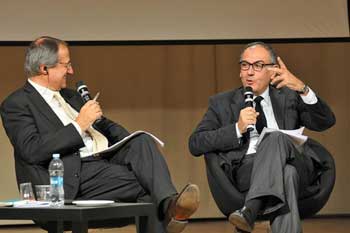
Sep 28, 2015 | Focolare Worldwide
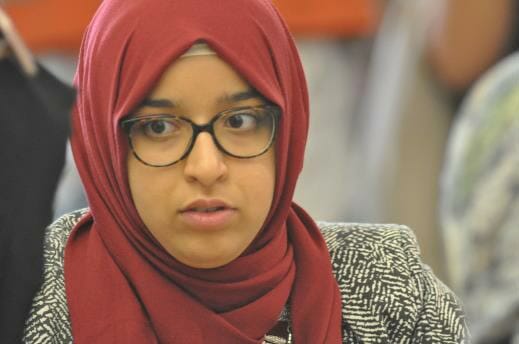 Ideas such as involvement as the method; the ability to dialogue respecting not only the differing ideas and convictions of others, but also their sufferings; biodiversity that values cultural riches; seeking greater justice; transforming indignation into collective action for changing the world – these were the main values behind the ten projects and initiatives that brought out the vitality of Italian society today. It concluded with a variety of voices, projects and events that started from the bottom of Italian society, including the sixth edition of LoppianoLab. More than 2,000 attendees emphasised the importance of sharing and dialogue amongst business leaders, politicians, educators, citizens, young people, communicators and local administrators – civil society in its diversity of expressions.
Ideas such as involvement as the method; the ability to dialogue respecting not only the differing ideas and convictions of others, but also their sufferings; biodiversity that values cultural riches; seeking greater justice; transforming indignation into collective action for changing the world – these were the main values behind the ten projects and initiatives that brought out the vitality of Italian society today. It concluded with a variety of voices, projects and events that started from the bottom of Italian society, including the sixth edition of LoppianoLab. More than 2,000 attendees emphasised the importance of sharing and dialogue amongst business leaders, politicians, educators, citizens, young people, communicators and local administrators – civil society in its diversity of expressions.
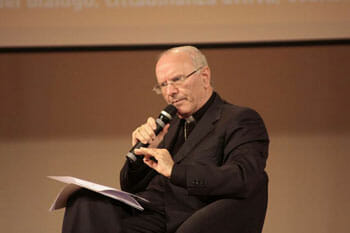
Msgr. Nunzio Galantino, Secretary General of the Italian Bishops Conference
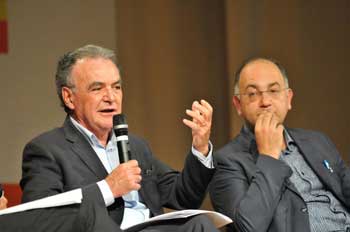
Luigi Bobba, Under Secretary of the Ministry of Social Politics and Work – Luigino Bruni, Economist

Vincenzo Morgante, Director of the TGR RAI – Michele Zanzucchi, Director Città Nuova

Sep 28, 2015 | Non categorizzato
 “Real kindness is an exchange with essentially unpredictable consequences. It is a risk precisely because it mingles our needs and desires with the needs and desires of others...” A. Phillips e B. Taylor, On Kindness “Businesses and organizations are good places for a good and fulfilling life if and until they let non-economic virtues live alongside with the economic-business ones. It is a decisive co-existence that is not easy at all, because it requires managers to give up total control over the behaviour of people, to accept an element of unpredictability in their actions and to be willing to relativize efficiency, which is becoming the real dogma of the new religion of our time. Generosity is one of these non-economic virtues that, however, are also essential to every business and institution. The root of generosity lies in the Latin word genus, generis, a term that refers to race, family, birth – this is also the first meaning of the word gender. This ancient etymology – that is lost now – tells us important things about generosity. First of all it reminds us that our generosity has much to do with the transmission of life: with our family, with the people around us, with the environment in which we grow up and where we learn how to live. We receive it as an inheritance when we come into the world. It is a gift that our parents and relatives pass on to us. Generosity is formed inside the family home. The generosity we find in ourselves is very dependent on that of our parents, how and how much love there had been amongst them before we were born, the life choices they made and the ones they make when we start looking at them. It all depends on their faithfulness, their hospitality, their attitude to the poor, their willingness to “waste” time to listen to and help their friends, the love and respect they show towards their parents. This primary generosity is not a personal virtue, but a gift that becomes part of the moral and spiritual standard of what is called character. It is a capital with which we come to the world, which was formed before our birth and is nourished by the quality of relationships in the earliest years of our life. It also depends on the generosity of our grandparents, great-grandparents, neighbours, and that of many others who may not be contributing to our DNA but are still present, in mysterious but very real ways, in our own generosity (and non-generosity). My generosity is influenced by the poets who have nourished the heart of our family. By the prayers of my people, the musicians I love and listen to, by the storytellers in village festivals, by the speeches and actions of politicians, by the sermons of preachers. By the martyrs of resistance, who gave their life yesterday for my freedom today. By the generosity of countless women of the past centuries (there is a great affinity between women and generosity), that many times placed the flourishing of the family they gave birth to before their own – and still continue to do so. Generosity generates gratitude towards those who have made us generous by their own generosity. Living with generous people makes us more generous – and the same is true for prayer, music, beauty…. The cultivation of generosity produces many more effects than the ones we can see and measure – and the same goes for our non-generosity and that of others. The stock of generosity of a family, a community or a people is something like the sum total of the generosity of each and every member of it. Every generation increases or reduces the value of this stock, and the latter is happening today in Europe where our generation, impoverished in ideals and great passions, is squandering the wealth of generosity it has inherited. A state that leaves half of its young people without work is not a generous state”. (Read more) by Luigino Bruni published in Avvenire ( (Italian newspaper) on 23/08/2015
“Real kindness is an exchange with essentially unpredictable consequences. It is a risk precisely because it mingles our needs and desires with the needs and desires of others...” A. Phillips e B. Taylor, On Kindness “Businesses and organizations are good places for a good and fulfilling life if and until they let non-economic virtues live alongside with the economic-business ones. It is a decisive co-existence that is not easy at all, because it requires managers to give up total control over the behaviour of people, to accept an element of unpredictability in their actions and to be willing to relativize efficiency, which is becoming the real dogma of the new religion of our time. Generosity is one of these non-economic virtues that, however, are also essential to every business and institution. The root of generosity lies in the Latin word genus, generis, a term that refers to race, family, birth – this is also the first meaning of the word gender. This ancient etymology – that is lost now – tells us important things about generosity. First of all it reminds us that our generosity has much to do with the transmission of life: with our family, with the people around us, with the environment in which we grow up and where we learn how to live. We receive it as an inheritance when we come into the world. It is a gift that our parents and relatives pass on to us. Generosity is formed inside the family home. The generosity we find in ourselves is very dependent on that of our parents, how and how much love there had been amongst them before we were born, the life choices they made and the ones they make when we start looking at them. It all depends on their faithfulness, their hospitality, their attitude to the poor, their willingness to “waste” time to listen to and help their friends, the love and respect they show towards their parents. This primary generosity is not a personal virtue, but a gift that becomes part of the moral and spiritual standard of what is called character. It is a capital with which we come to the world, which was formed before our birth and is nourished by the quality of relationships in the earliest years of our life. It also depends on the generosity of our grandparents, great-grandparents, neighbours, and that of many others who may not be contributing to our DNA but are still present, in mysterious but very real ways, in our own generosity (and non-generosity). My generosity is influenced by the poets who have nourished the heart of our family. By the prayers of my people, the musicians I love and listen to, by the storytellers in village festivals, by the speeches and actions of politicians, by the sermons of preachers. By the martyrs of resistance, who gave their life yesterday for my freedom today. By the generosity of countless women of the past centuries (there is a great affinity between women and generosity), that many times placed the flourishing of the family they gave birth to before their own – and still continue to do so. Generosity generates gratitude towards those who have made us generous by their own generosity. Living with generous people makes us more generous – and the same is true for prayer, music, beauty…. The cultivation of generosity produces many more effects than the ones we can see and measure – and the same goes for our non-generosity and that of others. The stock of generosity of a family, a community or a people is something like the sum total of the generosity of each and every member of it. Every generation increases or reduces the value of this stock, and the latter is happening today in Europe where our generation, impoverished in ideals and great passions, is squandering the wealth of generosity it has inherited. A state that leaves half of its young people without work is not a generous state”. (Read more) by Luigino Bruni published in Avvenire ( (Italian newspaper) on 23/08/2015
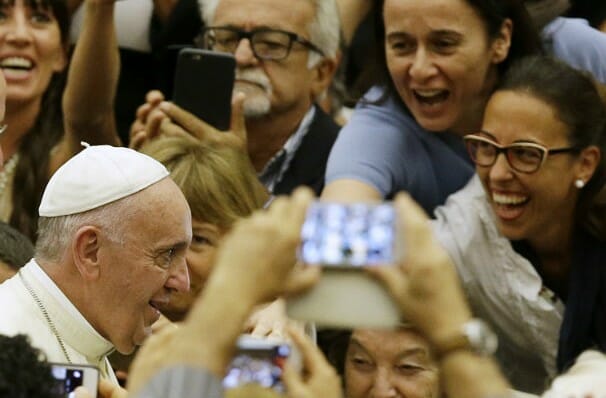
Sep 26, 2015 | Non categorizzato
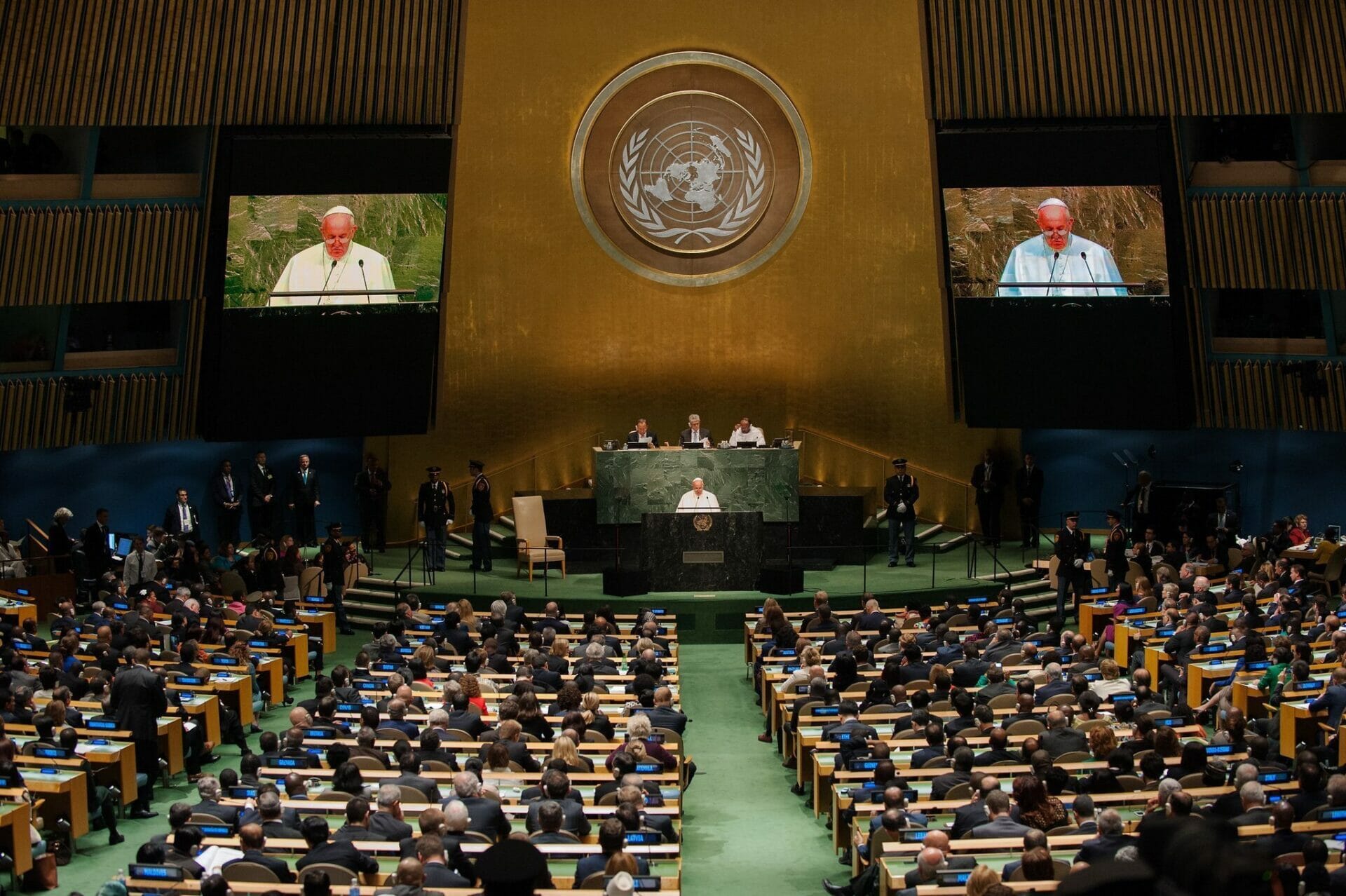 “Welcome, Holy Father” posters appeared all around the city already on Thursday. The taxi driver watching the Pope on TV was not indifferent: “So, you’re going to see the Pope tomorrow? Congratulations!” “Everyone finds the Pope appealing because he is authentic,” a non-Catholic man on the train said. He’s right: Francis does not need to attract attention or make himself appealing to all. And so he gave us a lesson before the UN’s General Assembly: on sustainable development, climate change and the issue of refugees: “We must not be appalled by the numbers… we have to look at their faces and listen to their stories,” he said in Washington. And at the UN: “Every man must be able to have concrete access to indispensible material and spiritual goods: a home, a dignified and well paid job, enough food, drinking water and religious freedom. ” He again strongly criticised drug trafficking, sexual exploitation of people, the arms rackets. In the same way as he had clearly denounced before the US Congress, he made another appeal to put aside divisions and antagonisms between political parties and to help the poor. The sacredness of each human being is a theme he strongly feels, and at the end of his speech, there were unending rounds of applause. He then left and greeted the people from his Fiat car which seemed so tiny amid the huge limousines.
“Welcome, Holy Father” posters appeared all around the city already on Thursday. The taxi driver watching the Pope on TV was not indifferent: “So, you’re going to see the Pope tomorrow? Congratulations!” “Everyone finds the Pope appealing because he is authentic,” a non-Catholic man on the train said. He’s right: Francis does not need to attract attention or make himself appealing to all. And so he gave us a lesson before the UN’s General Assembly: on sustainable development, climate change and the issue of refugees: “We must not be appalled by the numbers… we have to look at their faces and listen to their stories,” he said in Washington. And at the UN: “Every man must be able to have concrete access to indispensible material and spiritual goods: a home, a dignified and well paid job, enough food, drinking water and religious freedom. ” He again strongly criticised drug trafficking, sexual exploitation of people, the arms rackets. In the same way as he had clearly denounced before the US Congress, he made another appeal to put aside divisions and antagonisms between political parties and to help the poor. The sacredness of each human being is a theme he strongly feels, and at the end of his speech, there were unending rounds of applause. He then left and greeted the people from his Fiat car which seemed so tiny amid the huge limousines. 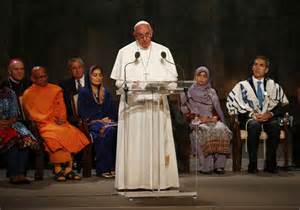 At Ground Zero, 500 representatives of various religions were all waiting to pray together for peace. Sue Kopp, a focolarina of New York who was able to participate in the rite, affirmed: “It was so meaningful also due to the diversity of this country. This place, which seemed so sacred to me, and marked by such immense suffering, has been transformed into a place of hope. The dream of a civilisation of love, is becoming a reality.”. Joe Klock, of New Humanity (an International NGO accredited at the UN) said; “The Pope underlined the importance of building unity in diversity, where peace and love reign among the nations and the hearts of all. This reality demonstrates that the world needs the spirituality of unity, which seems to be precisely tailored to this country!” Also in New York, the Pope visited some charitable organisations, among which a model school in Harlem. And then, in Central Park. The 80,000 lucky people were able to get entrance tickets, waited for hours, even to get just a glimpse of him. The Mass was celebrated at Madison Square Garden, where the seats are usually occupied by basketball stars and pop singers. The people waited for hours to enter but no one complained. Then the big surprise: Pope Francis arrived 20 minutes earlier than planned!
At Ground Zero, 500 representatives of various religions were all waiting to pray together for peace. Sue Kopp, a focolarina of New York who was able to participate in the rite, affirmed: “It was so meaningful also due to the diversity of this country. This place, which seemed so sacred to me, and marked by such immense suffering, has been transformed into a place of hope. The dream of a civilisation of love, is becoming a reality.”. Joe Klock, of New Humanity (an International NGO accredited at the UN) said; “The Pope underlined the importance of building unity in diversity, where peace and love reign among the nations and the hearts of all. This reality demonstrates that the world needs the spirituality of unity, which seems to be precisely tailored to this country!” Also in New York, the Pope visited some charitable organisations, among which a model school in Harlem. And then, in Central Park. The 80,000 lucky people were able to get entrance tickets, waited for hours, even to get just a glimpse of him. The Mass was celebrated at Madison Square Garden, where the seats are usually occupied by basketball stars and pop singers. The people waited for hours to enter but no one complained. Then the big surprise: Pope Francis arrived 20 minutes earlier than planned!  The altar, the chair and the pulpit were simply handcrafted . Cardinal Timothy Dolan had the impression that the Pope would have appreciated this more than if the items were made by a designer. And here, Francis became the pastor of the immense city, recalling the reading from the book of Isaiah 9.1: “The people walking in the darkness saw a great light.”. He spoke about the difficulties of the multicultural cities where the light is absent due to so much smog. “But Jesus walks down our streets today,” he said and continued to invite all to go out towards the others, with the heart of a “merciful father waiting for his children to come home.” The church is alive in the cities, the Pope stressed, and so Christians have to bear witness to the light of the Good News. The applause went on and on. As in all the other countries, also in the USA the Pope has touched the heart of each one of us.
The altar, the chair and the pulpit were simply handcrafted . Cardinal Timothy Dolan had the impression that the Pope would have appreciated this more than if the items were made by a designer. And here, Francis became the pastor of the immense city, recalling the reading from the book of Isaiah 9.1: “The people walking in the darkness saw a great light.”. He spoke about the difficulties of the multicultural cities where the light is absent due to so much smog. “But Jesus walks down our streets today,” he said and continued to invite all to go out towards the others, with the heart of a “merciful father waiting for his children to come home.” The church is alive in the cities, the Pope stressed, and so Christians have to bear witness to the light of the Good News. The applause went on and on. As in all the other countries, also in the USA the Pope has touched the heart of each one of us.

 “Hosting the extraordinary in the ordinary things, training one’s perception to see the growth of the tree: without prophets, life would be a place of pessimism and not of hope which unites us.” In brief, this was what the economist, Luigino Bruni, said at the National Congress of the EoC networks during the 6th edition of LoppianoLab, attended by more than 2,000 participants from all over the country, and also others. Economy of Conmunion as a model to start with. “Only by regenerating relationships can we overcome fear and relaunch the economy: today, while mistrust and pessimism are holding back the relaunching of the economy in Europe and the Western world, we dare to look at the economy with the eyes of the African youth. – Bruni began – If we want to contribute to the rebirth of the economy, we have to regenerate the territories, families, relationships and rediscover and practice the civic virtues”. Not by chance, the title chosen was “Beyond fear. The culture of dialogue, active citizenship, civic economy,” for the 2015 edition of LoppianoLab, promoted by the Città Nuova Publishers, the Polo Lionello Bonfanti-Economy of Communion (EoC), Sophia University Institute (SUI) and the Loppiano International Centre (FI). Obviously there was a pressing call to the economic sector that involves about 200 businesses in Italy and 800 throughout the world, to adhere to and focus on man and his relational dimension in all their economic dealings, by practicing an Economy of Communion.
“Hosting the extraordinary in the ordinary things, training one’s perception to see the growth of the tree: without prophets, life would be a place of pessimism and not of hope which unites us.” In brief, this was what the economist, Luigino Bruni, said at the National Congress of the EoC networks during the 6th edition of LoppianoLab, attended by more than 2,000 participants from all over the country, and also others. Economy of Conmunion as a model to start with. “Only by regenerating relationships can we overcome fear and relaunch the economy: today, while mistrust and pessimism are holding back the relaunching of the economy in Europe and the Western world, we dare to look at the economy with the eyes of the African youth. – Bruni began – If we want to contribute to the rebirth of the economy, we have to regenerate the territories, families, relationships and rediscover and practice the civic virtues”. Not by chance, the title chosen was “Beyond fear. The culture of dialogue, active citizenship, civic economy,” for the 2015 edition of LoppianoLab, promoted by the Città Nuova Publishers, the Polo Lionello Bonfanti-Economy of Communion (EoC), Sophia University Institute (SUI) and the Loppiano International Centre (FI). Obviously there was a pressing call to the economic sector that involves about 200 businesses in Italy and 800 throughout the world, to adhere to and focus on man and his relational dimension in all their economic dealings, by practicing an Economy of Communion.  Dreaming of Africa. The workshop often referred to the EoC’s international congress held last May in Nairobi, the vitality of which was discussed by Geneviéve Sanze, an economist from Central Africa. In her continent, as of today, there are about 30 businesses that have joined the project which gave life to a network of support for the youth by the EoC entrepreneurs. People at times think that “Economy is a science of wealth: and believe that you have to go to the big cities to practice it, but with EoC, it has become the science of communion – she affirmed. Exchange of ideas, dialogue, and fraternity: in Nairobi we saw that every person brings a certain wealth within him that is all-inclusiveness and uniqueness, in the same way as the creative entrepreneur tries to enrich his ambience and his territory without catering to standards that are remote and far from the attention of the outskirts in need. And a totally new way of facing the topic of economy at international levels is to start from Africa, but even more so when considering the contribution Africa can give, rather than receive, thus giving trust and new drive to the Africans themselves, to empower their opportunities in their own countries.” Africa is a young continent, as testified to by Gloria and Melchiot, two African students enrolled in the Sophia University Institute in Loppiano: “Allowing the African youth to have their dreams signifies avoiding the phenomenon of immigration: so why don’t we open businesses in Africa, so that they can find jobs there?” Anouk Grevin, Economist (University of Nantes and Sophia University Institute), announced that “Two business projects have started up in Nairobi. The Catholic University Institute of Buea (CUIB) in Cameroon has announced the institution of a Degree in the Economy of Communion, and the start in 2017 of the project incubator, “Siobhan,” to support the birth of new businesses in Africa. The second project dedicated to François Neveux, French pioneer of the EoC, will bring together entrepreneurs from all over the world, and create a network of economic support and project design, addressing especially young entrepreneurs.” Source: Città Nuova
Dreaming of Africa. The workshop often referred to the EoC’s international congress held last May in Nairobi, the vitality of which was discussed by Geneviéve Sanze, an economist from Central Africa. In her continent, as of today, there are about 30 businesses that have joined the project which gave life to a network of support for the youth by the EoC entrepreneurs. People at times think that “Economy is a science of wealth: and believe that you have to go to the big cities to practice it, but with EoC, it has become the science of communion – she affirmed. Exchange of ideas, dialogue, and fraternity: in Nairobi we saw that every person brings a certain wealth within him that is all-inclusiveness and uniqueness, in the same way as the creative entrepreneur tries to enrich his ambience and his territory without catering to standards that are remote and far from the attention of the outskirts in need. And a totally new way of facing the topic of economy at international levels is to start from Africa, but even more so when considering the contribution Africa can give, rather than receive, thus giving trust and new drive to the Africans themselves, to empower their opportunities in their own countries.” Africa is a young continent, as testified to by Gloria and Melchiot, two African students enrolled in the Sophia University Institute in Loppiano: “Allowing the African youth to have their dreams signifies avoiding the phenomenon of immigration: so why don’t we open businesses in Africa, so that they can find jobs there?” Anouk Grevin, Economist (University of Nantes and Sophia University Institute), announced that “Two business projects have started up in Nairobi. The Catholic University Institute of Buea (CUIB) in Cameroon has announced the institution of a Degree in the Economy of Communion, and the start in 2017 of the project incubator, “Siobhan,” to support the birth of new businesses in Africa. The second project dedicated to François Neveux, French pioneer of the EoC, will bring together entrepreneurs from all over the world, and create a network of economic support and project design, addressing especially young entrepreneurs.” Source: Città Nuova





 “One day we were closing, when at 4:30 p.m. a mother with a baby about 8 months old arrived for a blood sample withdrawal.” Aline M. is a nurse and a biologist in the university clinic of Kinshasa. In the Congo/DRC, the birth rate is very high, as is the mortality rate and the infant mortality rate. Life expectancy at birth and the average age of the population are both very low. “My colleagues had already closed the registration books and wanted to leave. But the words of the Gospel, which say to love one’s neighbour as oneself, came to my mind: ‘I have to welcome even this mother,’ I thought. I took a blood sample from the little one, and as I was finishing, the mother said to me with a firm voice, ‘God bless you, ma’am!”
“One day we were closing, when at 4:30 p.m. a mother with a baby about 8 months old arrived for a blood sample withdrawal.” Aline M. is a nurse and a biologist in the university clinic of Kinshasa. In the Congo/DRC, the birth rate is very high, as is the mortality rate and the infant mortality rate. Life expectancy at birth and the average age of the population are both very low. “My colleagues had already closed the registration books and wanted to leave. But the words of the Gospel, which say to love one’s neighbour as oneself, came to my mind: ‘I have to welcome even this mother,’ I thought. I took a blood sample from the little one, and as I was finishing, the mother said to me with a firm voice, ‘God bless you, ma’am!” 

 “Start Now!” That is, start here and now, to build authentic relationships and to generate trust. It is an invitation worth its weight in gold, you might say, and it was the title
“Start Now!” That is, start here and now, to build authentic relationships and to generate trust. It is an invitation worth its weight in gold, you might say, and it was the title “On the Other Side”: During the concert, many songs were heard from “
“On the Other Side”: During the concert, many songs were heard from “
 Ideas such as involvement as the method; the ability to dialogue respecting not only the differing ideas and convictions of others, but also their sufferings; biodiversity that values cultural riches; seeking greater justice; transforming indignation into collective action for changing the world – these were the main values behind the ten projects and initiatives that brought out the vitality of Italian society today. It concluded with a variety of voices, projects and events that started from the bottom of Italian society, including the sixth edition of
Ideas such as involvement as the method; the ability to dialogue respecting not only the differing ideas and convictions of others, but also their sufferings; biodiversity that values cultural riches; seeking greater justice; transforming indignation into collective action for changing the world – these were the main values behind the ten projects and initiatives that brought out the vitality of Italian society today. It concluded with a variety of voices, projects and events that started from the bottom of Italian society, including the sixth edition of 



 “Welcome, Holy Father” posters appeared all around the city already on Thursday. The taxi driver watching the Pope on TV was not indifferent: “So, you’re going to see the Pope tomorrow? Congratulations!” “Everyone finds the Pope appealing because he is authentic,” a non-Catholic man on the train said. He’s right: Francis does not need to attract attention or make himself appealing to all. And so he gave us a lesson before the UN’s General Assembly: on sustainable development, climate change and the issue of refugees: “We must not be appalled by the numbers… we have to look at their faces and listen to their stories,” he said in Washington. And at the
“Welcome, Holy Father” posters appeared all around the city already on Thursday. The taxi driver watching the Pope on TV was not indifferent: “So, you’re going to see the Pope tomorrow? Congratulations!” “Everyone finds the Pope appealing because he is authentic,” a non-Catholic man on the train said. He’s right: Francis does not need to attract attention or make himself appealing to all. And so he gave us a lesson before the UN’s General Assembly: on sustainable development, climate change and the issue of refugees: “We must not be appalled by the numbers… we have to look at their faces and listen to their stories,” he said in Washington. And at the 